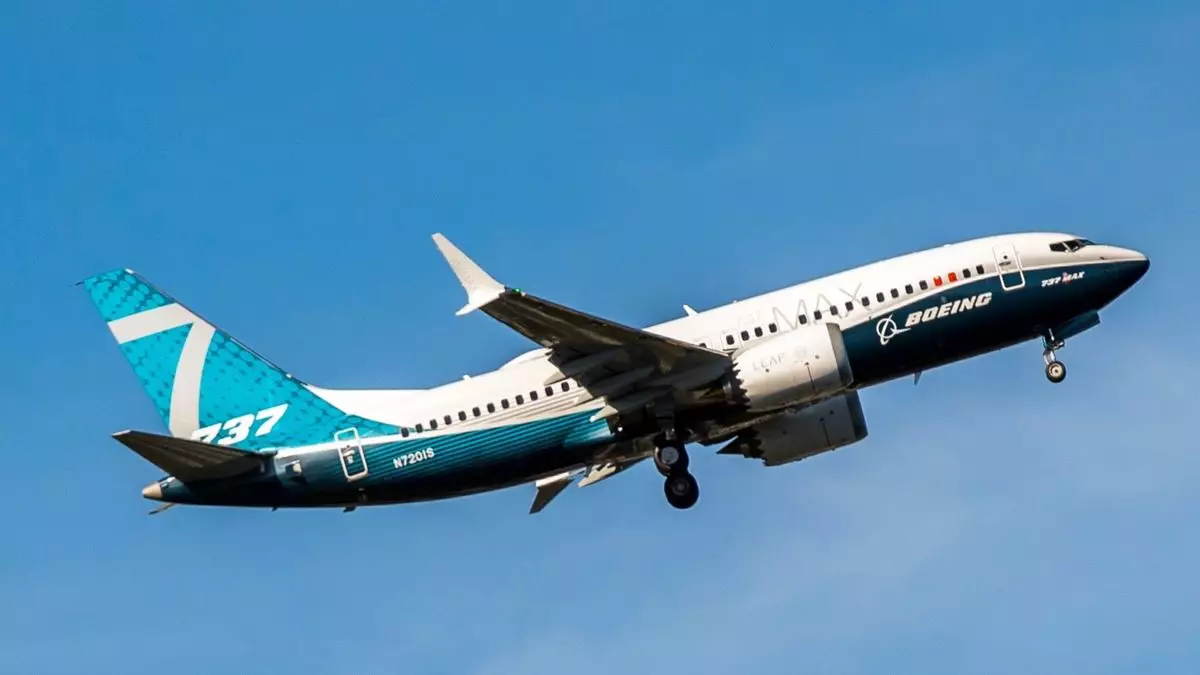Boeing decided to withdraw a request for a safety standard exemption for the 737 Max 7 aircraft following pressure from Sen. Tammy Duckworth (D-Ill.). The request was made to allow the Max 7 to fly while Boeing continued working on an engineering fix for the aircraft’s engine inlet de-icing system.
In a letter to FAA administrator Michael Whitaker, Duckworth highlighted a design flaw in the de-icing system that could cause it to overheat, potentially leading to the engine cover breaking off. This could result in fuselage-penetrating debris, endangering passengers seated behind the wing and even causing a loss of control of the aircraft.
Boeing, which was already facing scrutiny after an incident involving an Alaska Airlines Boeing 737-9 plane, quickly addressed Duckworth’s concerns. The company stated that it expects to develop the engineering fix within a year but will no longer pursue the exemption.
During Boeing’s fourth-quarter earnings call, CEO Dave Calhoun explained that he was persuaded by Duckworth’s reasoning when they met in Washington, D.C. Calhoun acknowledged that withdrawing the exemption request was a sound and principled decision.
Southwest Airlines, the launch partner for the Max 7, currently has 307 firm orders for the aircraft through 2031. As of last week, they still had 27 Max 7s scheduled for delivery this year. However, the airline announced that it has removed the Max 7 from its flight planning for 2024. Despite this change, Southwest plans to continue growing by 6% this year without the addition of Max 7 planes.
It is worth noting that the de-icing system design flaw also affects the already-certified Boeing Max 8s and Max 9s. This means that the issue extends beyond just the Max 7, raising concerns about the safety of the entire Max series.
The decision by Boeing to withdraw the exemption request shows a commitment to prioritizing passenger safety. By acknowledging the concerns raised by Senator Duckworth and taking prompt action, the company is demonstrating its dedication to addressing potential risks and ensuring the safe operation of its aircraft.
The design flaw in the de-icing system is a serious matter that cannot be overlooked. The potential consequences, such as engine cover breakage and the release of debris, highlight the importance of thorough engineering fixes. Boeing’s commitment to developing a solution within a year is a step in the right direction.
With the Max series already under scrutiny due to previous incidents and now facing additional concerns regarding the de-icing system design flaw, Boeing must take proactive measures to regain public trust. The company’s response to the exemption withdrawal and commitment to fixing the issue are positive steps.
However, Boeing should also focus on strengthening its quality control and ensuring thorough testing of its aircraft. Public confidence in the safety of Boeing planes has been shaken, and transparent communication and stringent safety measures are essential for rebuilding trust.
The withdrawal of Boeing’s safety standard exemption request for the 737 Max 7 is a significant development in addressing a design flaw in the de-icing system. By taking Senator Duckworth’s concerns seriously and withdrawing the request, Boeing has demonstrated their commitment to passenger safety. It is crucial for the company to continue prioritizing safety and taking proactive steps to address any issues that may arise.


Leave a Reply